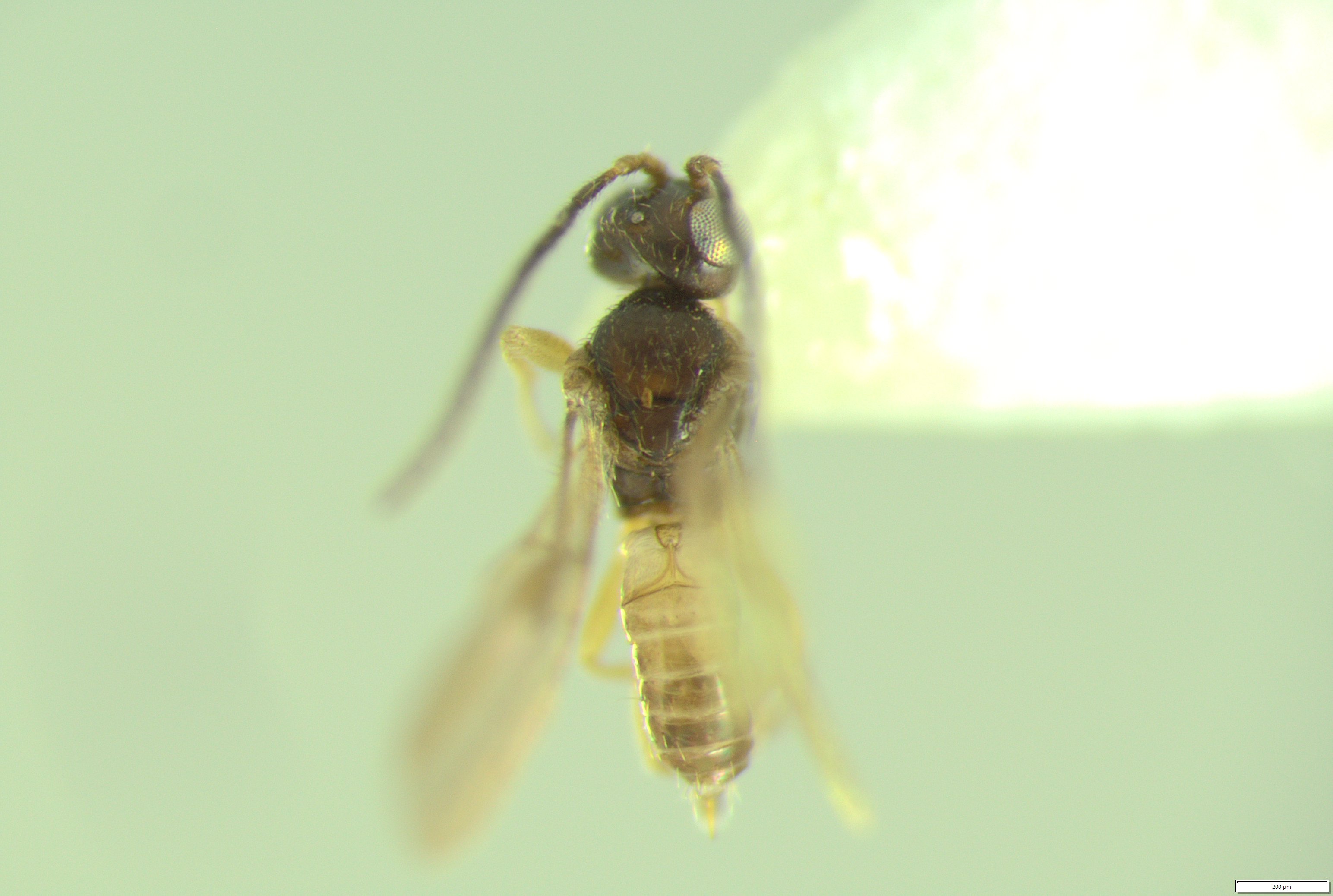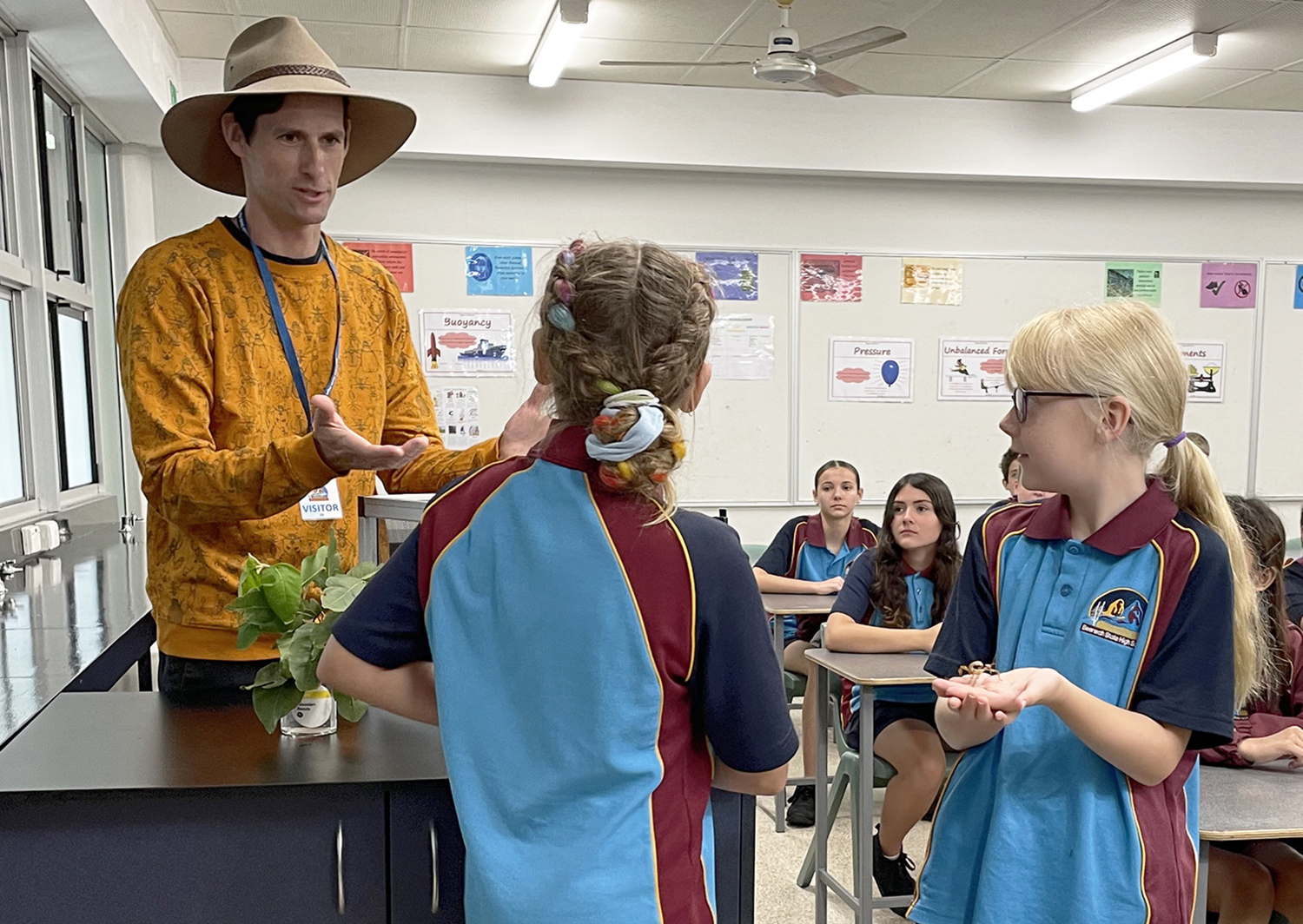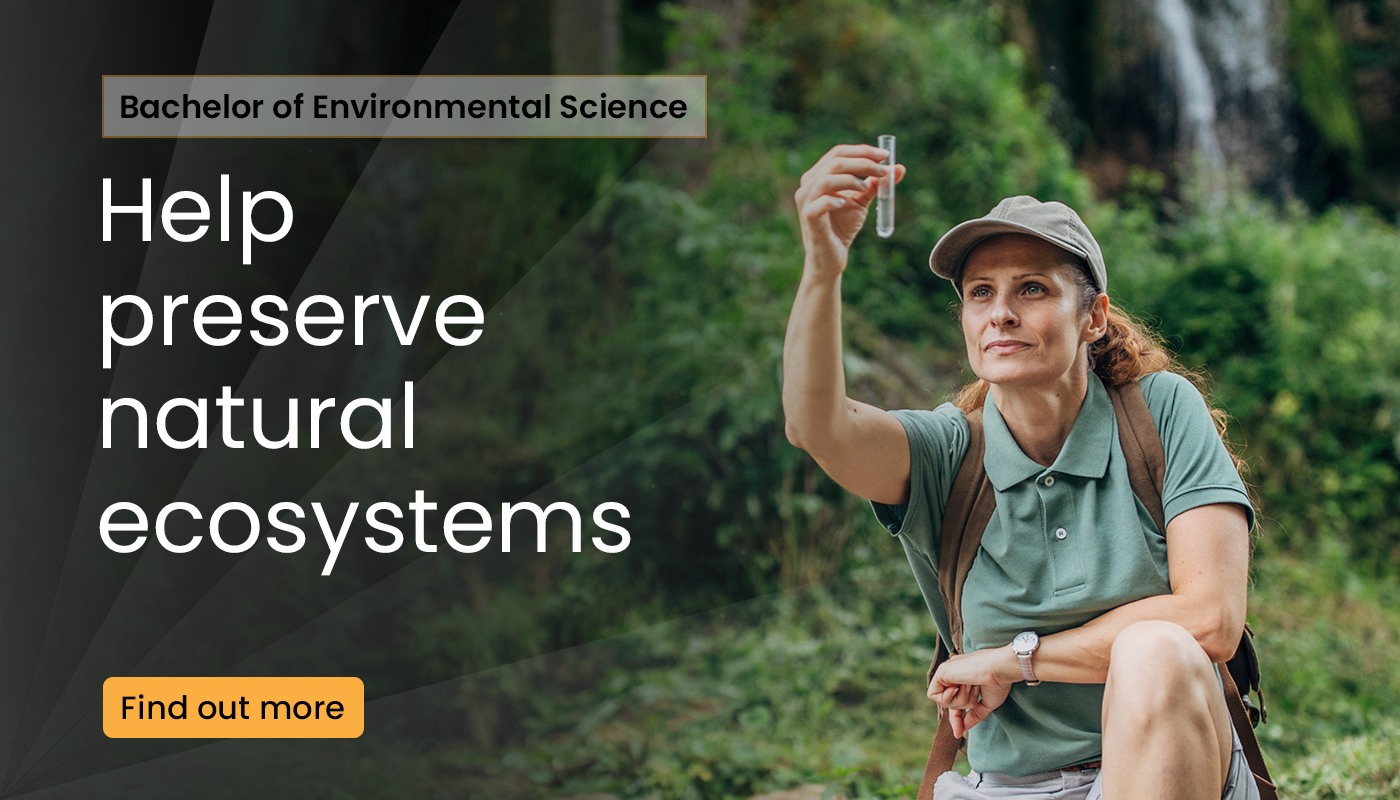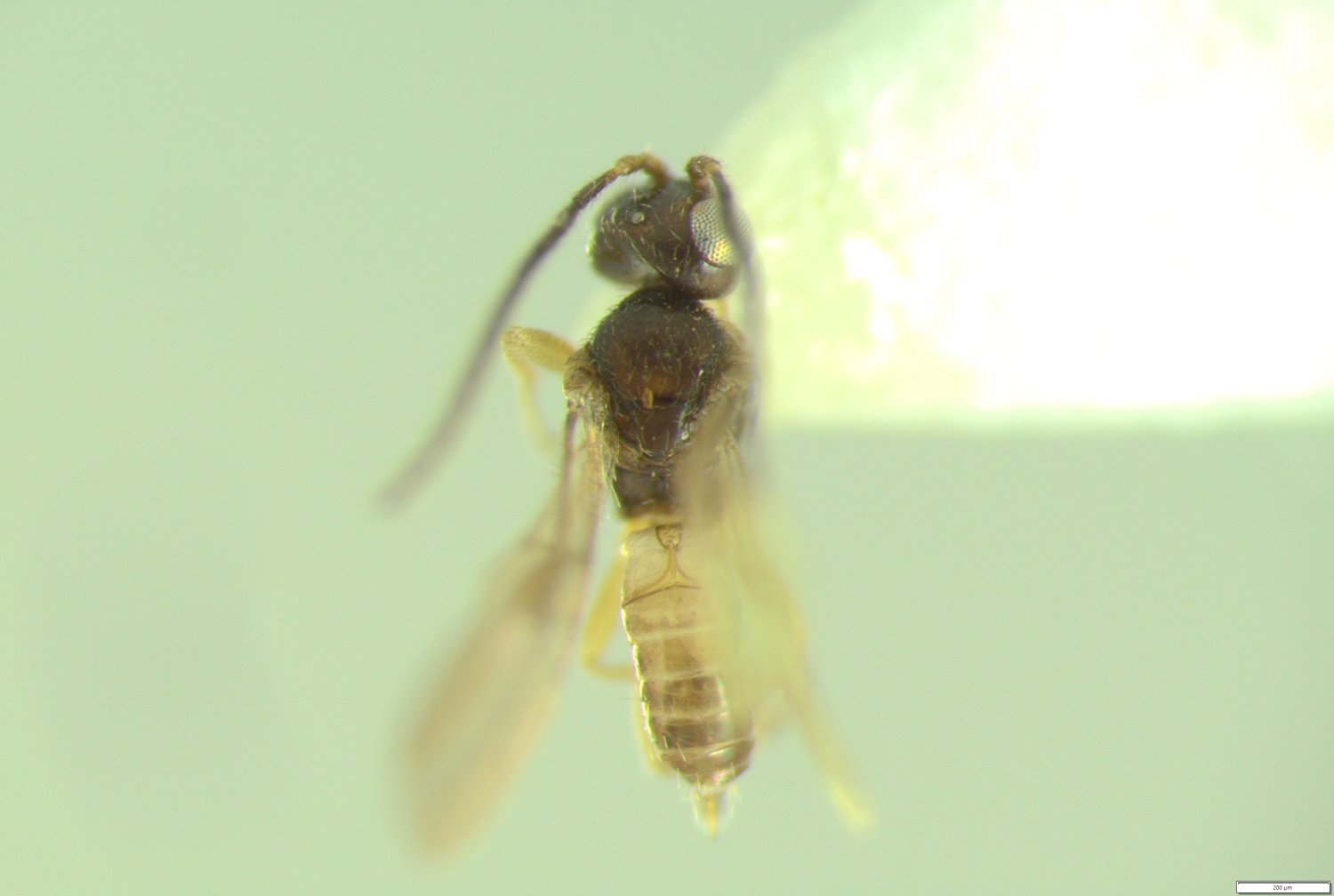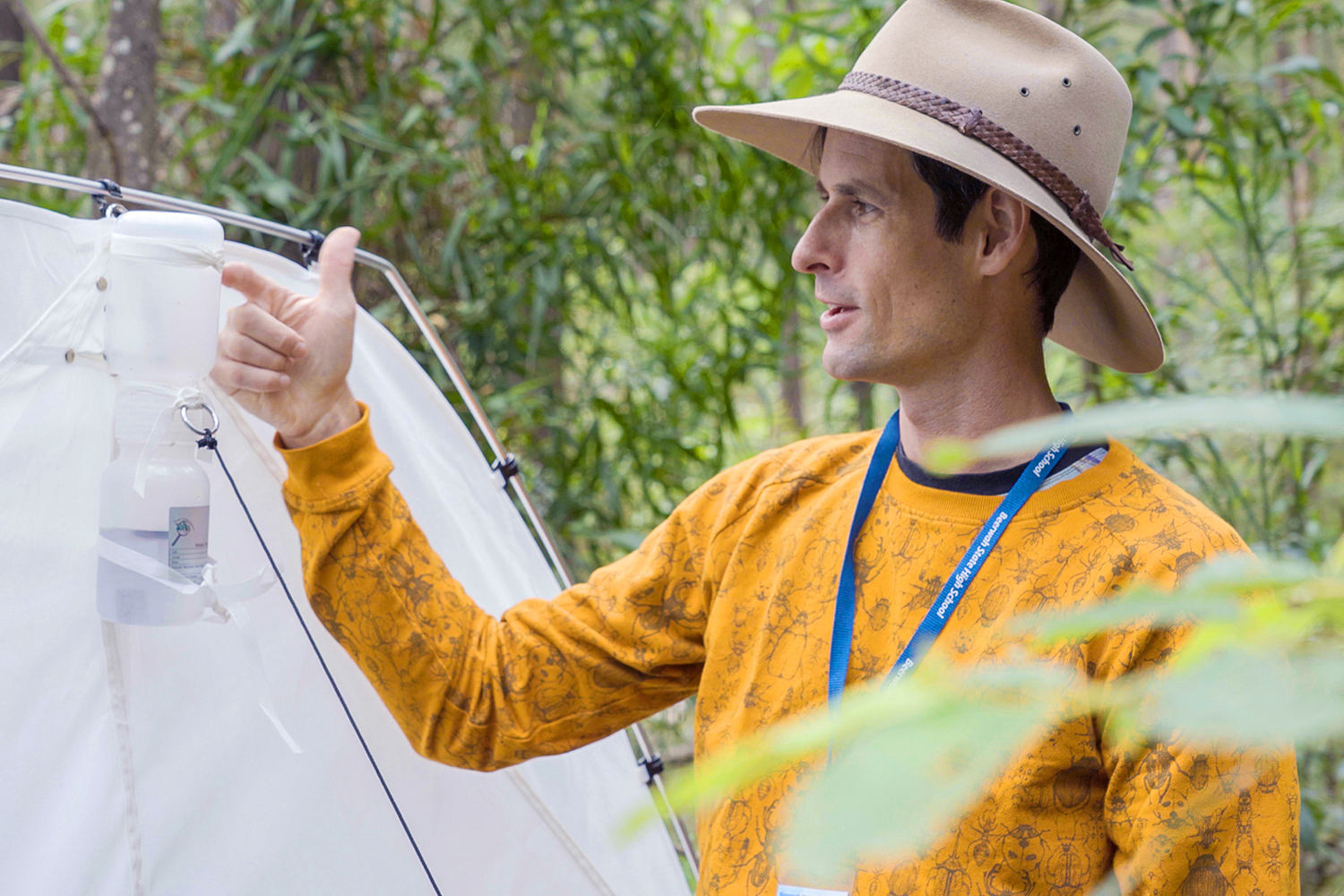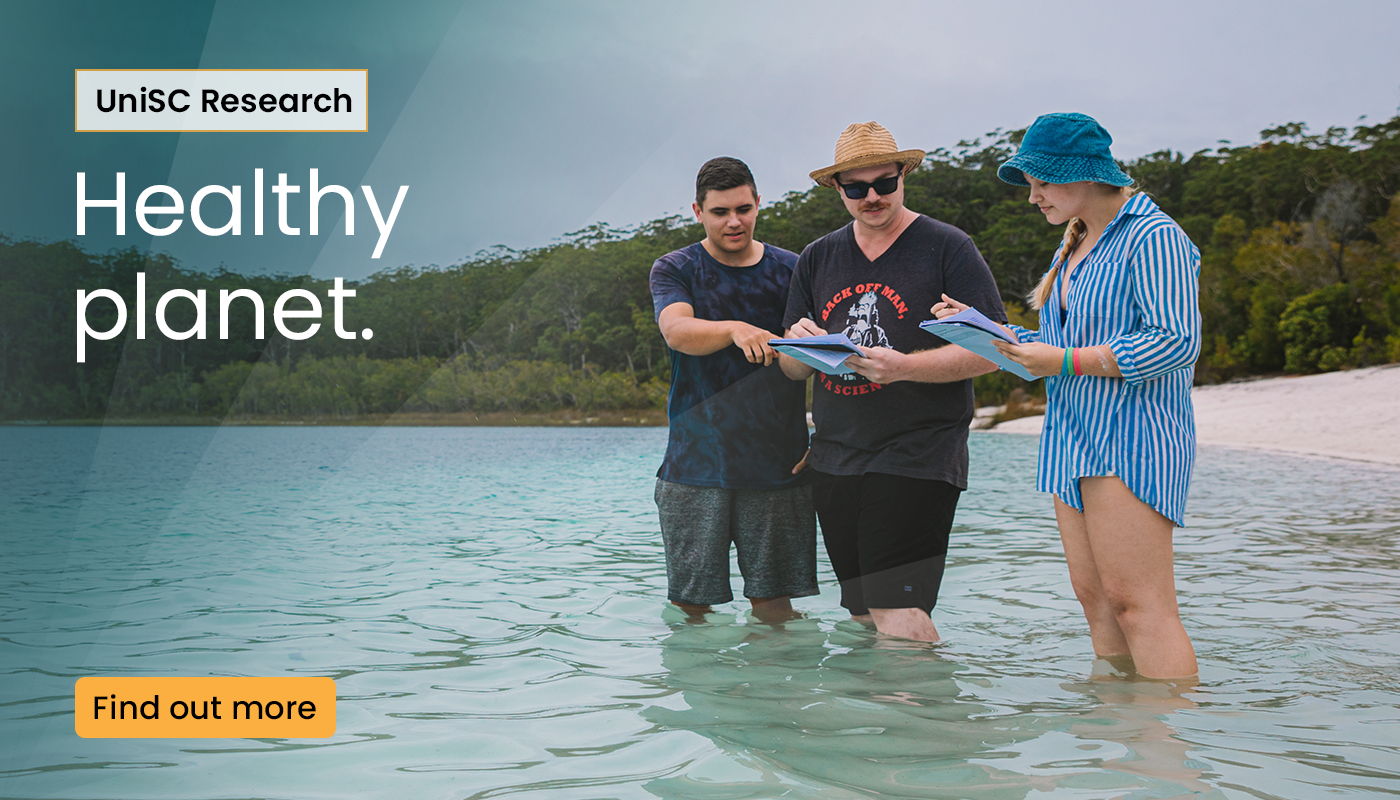A University of the Sunshine Coast entomologist helping Queensland children find new insect species in their school grounds to add to a global database is celebrating the project’s win in last night’s 2024 Australian Museum Eureka Prizes.
UniSC Research Fellow Dr Andy Howe coordinated 17 schools in the tri-state Insect Investigators program, which won a Eureka Prize for Innovation in Citizen Science at Australia’s prestigious science awards announced in Sydney.
Dr Howe said the success of Insect Investigators, led by the University of Adelaide and the South Australian Museum, showed the power of citizen science and ecological research to nurture a healthier planet.
“It was fantastic to see the enthusiasm of students and teacher at schools from Mornington Island in the Gulf to Tamborine Mountain in the south, and out west to Winton,” he said.
“The schools helped us collect data on insect distributions and identities, which is extremely important and useful for all sorts of industries and disciplines, such as agriculture (biological control), biosecurity (introduced species) and insect conservation."
“People may not realise that only about 37 percent of Australia’s estimated 225,000 insect species have been formally named and described, so this program has uncovered more of our mysterious biodiversity” - Andy Howe
Students across South Australia, Queensland and Western Australia named 17 new insect species since 2019 in the program, which combined insect surveys with DNA sequencing and taxonomy.
One of those was on the Sunshine Coast in early 2023, when a parasitic wasp new to western science made its name at Beerwah State High School.
In all, 1,800 students from 54 schools documented more than 5,000 insect species using DNA.
Dr Howe said he was excited about an analysis of survey responses from students and teachers.
“It shows clear and positive impacts on students’ intentions for pro-environmental behaviour, which is a powerful and impactful outcome,” he said.
Insect Investigators, which received funding from the Australian Government, was led by the University of Adelaide and the South Australian Museum and supported by the University of the Sunshine Coast and the Queensland Museum.
It was among 55 finalists for 19 prizes in the nation’s premier science awards dedicated to the best of Australian scientific discovery, invention, communication, innovation and leadership.
Dr Howe’s ongoing research at UniSC’s Forest Research Institute focuses on insect biodiversity and insect-plant interactions in forests, urban areas and agriculture.
Queensland schools in the program included:
- Back Plains State School, south of Toowoomba
- Beerwah State High School, Sunshine Coast
- Belgian Gardens State School, Townsville
- Blackall State School, Blackall
- Cameron Downs State School, south of Hughenden
- Columba Catholic College, Charters Towers
- Gin Gin State High School, Gin Gin
- Glenden State School, southwest of Mackay
- Kogan State School, west of Dalby
- Mornington Island State School, Mornington Island
- Mount Molloy State School, southwest of Port Douglas
- Prospect Creek State School, west of Biloela
- Springsure State School, south of Emerald
- St Patrick's Catholic School, Winton
- Tamborine Mountain State School, Gold Coast
- Yeppoon State High School, Yeppoon
- Yeronga State School, Brisbane
Media enquiries: Please contact the Media Team media@usc.edu.au

